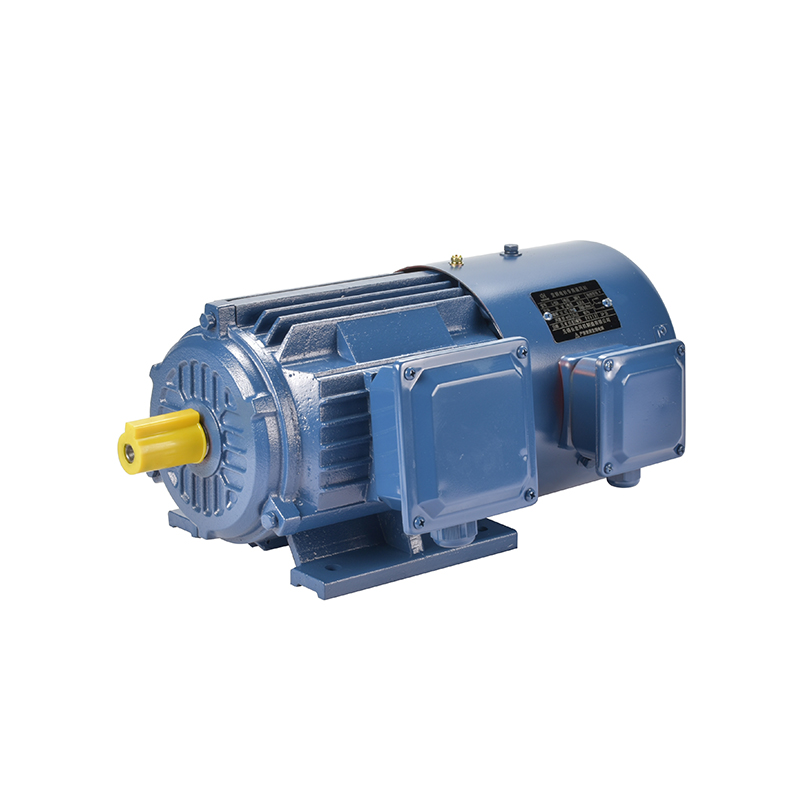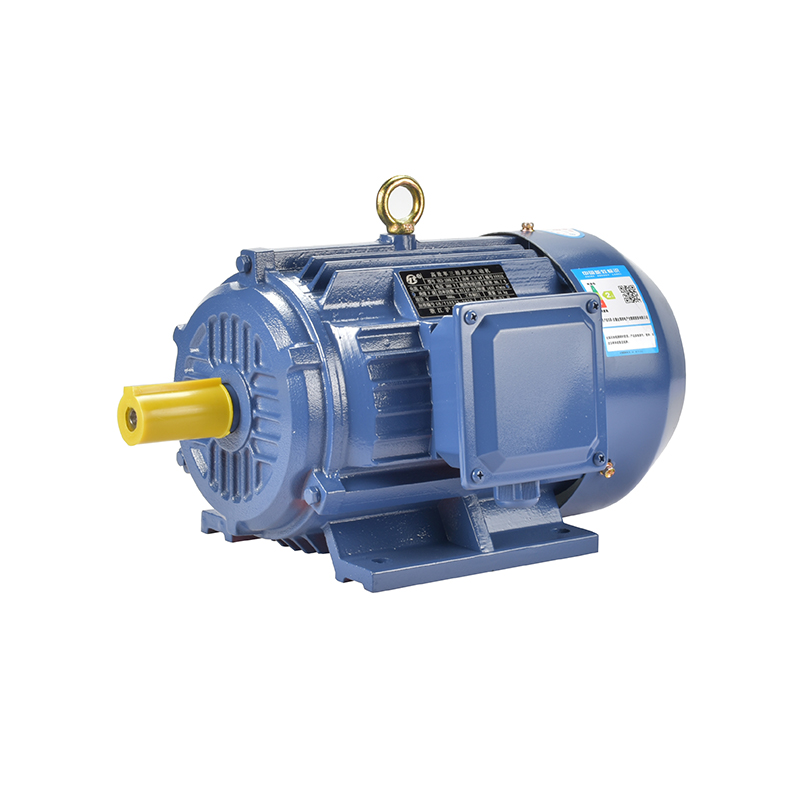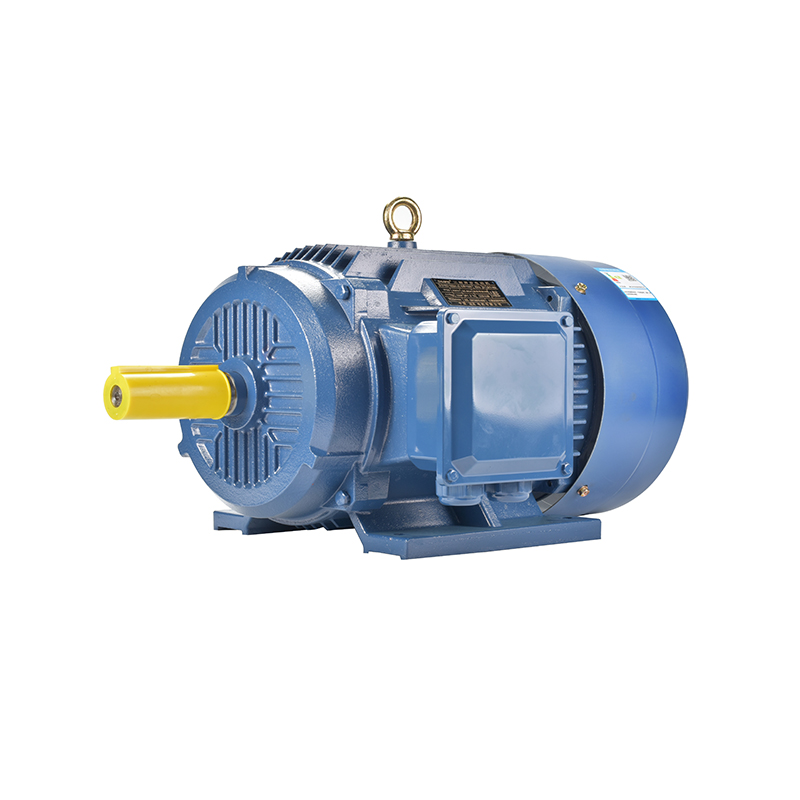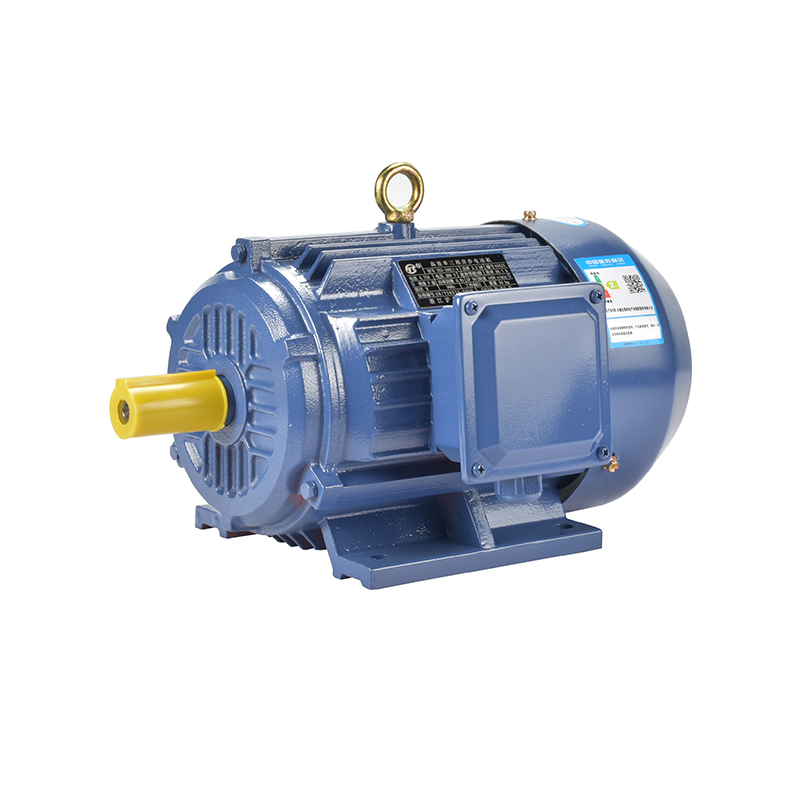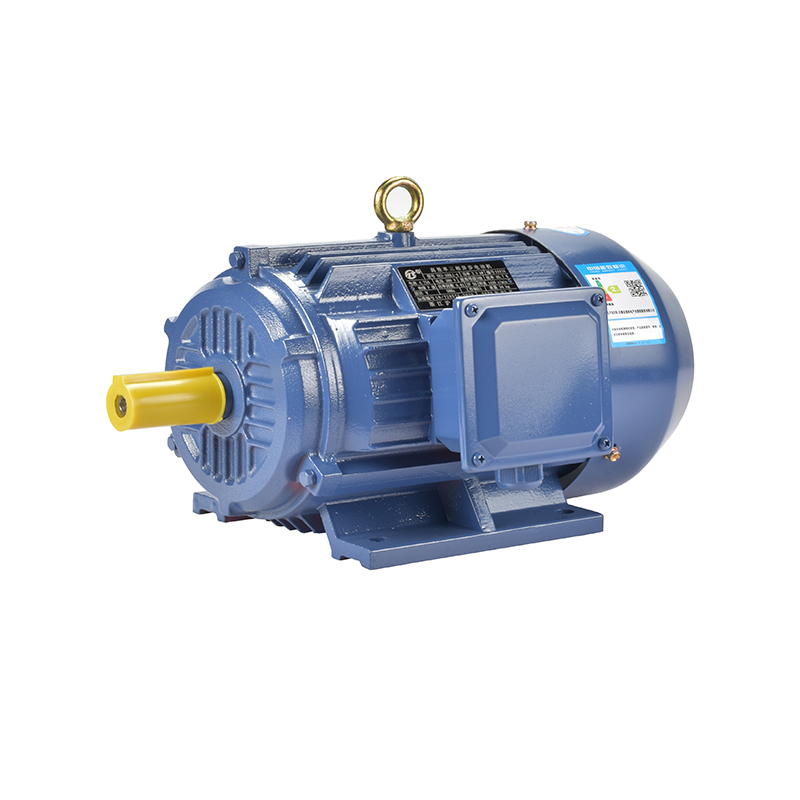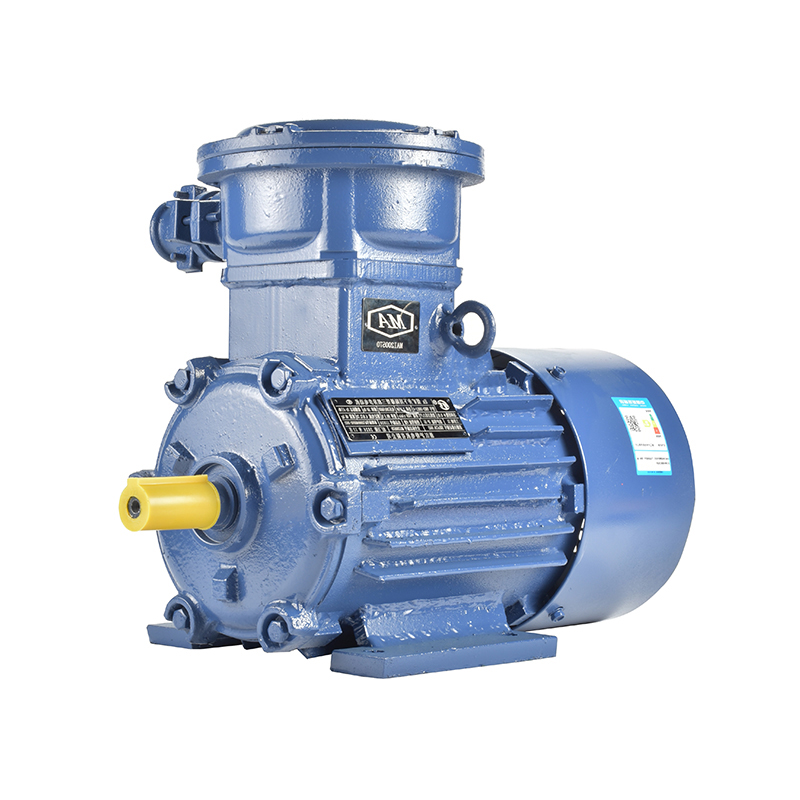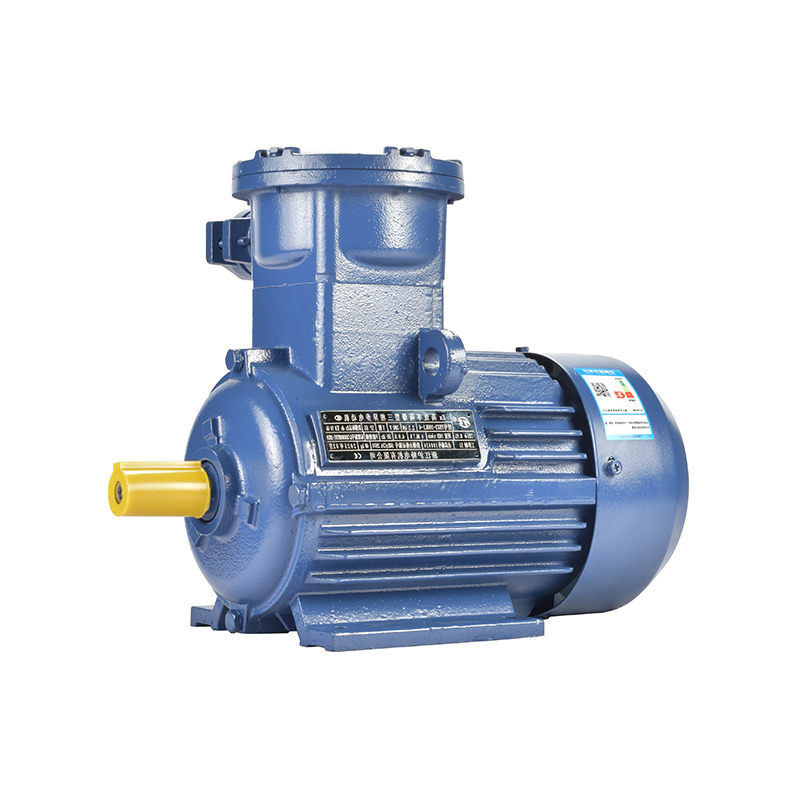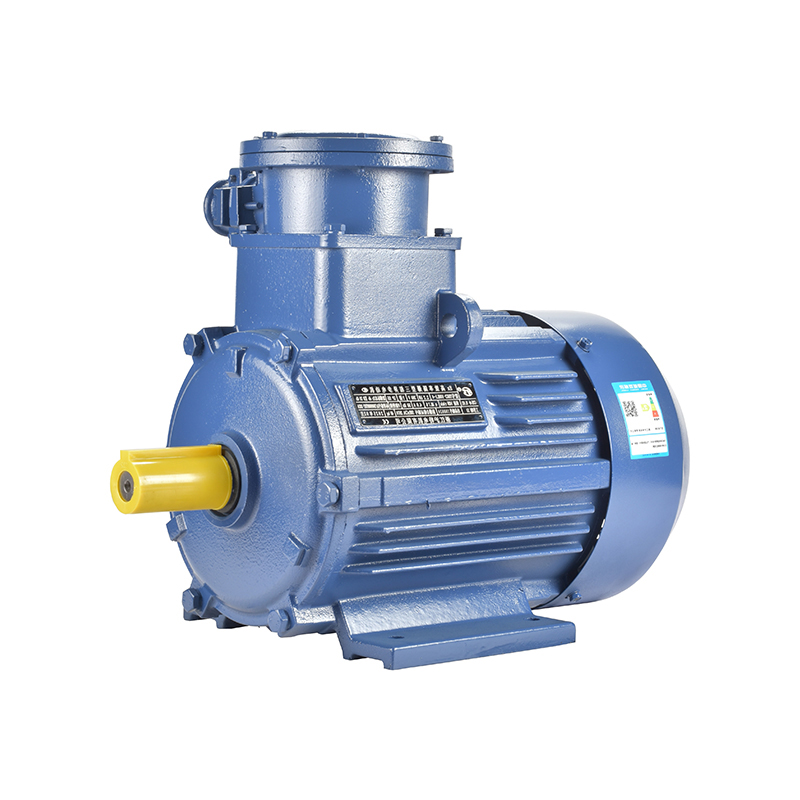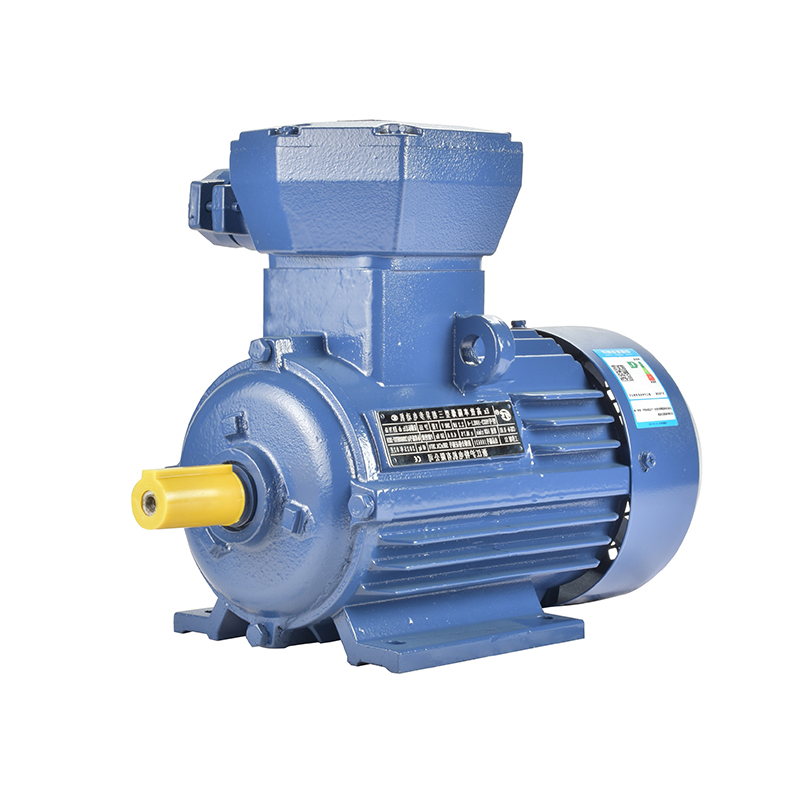Frequency Conversion Speed Regulation Dedicated Three-Phase Asynchronous Motor is a three-phase asynchronous motor dedicated for frequency conversion and speed regulation. It is used in conjunction with an electronic frequency converter to achieve stepless speed regulation within the range of 150-2750rpm. It is a good power for mechanical equipment that requires a wide range of stepless speed regulation. It is widely used in transportation, metallurgy, textiles, printing and dyeing, chemicals, mining, fans, pumps and other industries. Its electrical performance and installation dimensions are manufactured in accordance with the national standard JB/T7118 and are in line with international IEC standards.
YVF2/YVP2 Frequency Conversion Speed Regulation Dedicated Three-Phase Asynchronous Motor
-
Description
1. Precision Speed Control: One of the significant advantages of this motor is its ability to provide precise speed control. By adjusting the frequency of the power supply, the motor's speed can be finely tuned to match the specific requirements of the application. This level of control is essential in processes where speed variations can affect product quality or efficiency.
2. Energy Efficiency: The use of frequency conversion for speed regulation allows the motor to operate at the efficient speed for the task at hand. This can lead to significant energy savings, especially in applications where motors are run at partial loads or variable speeds. The motor only uses the power it needs, reducing energy waste.
3. Extended Motor Life: By operating the motor at the good speed and load, the wear and tear on the motor components are minimized. This can lead to a longer service life and reduced maintenance costs, which is a significant selling point for industries looking to reduce operational expenses.
4. Soft Start and Stop: The ability to control the acceleration and deceleration of the motor through frequency conversion reduces the stress on the motor and the mechanical system it drives. This soft start and stop feature reduces mechanical shock, which can lead to fewer breakdowns and a smoother operation.
5. Reduced Noise and Vibration: The smooth operation provided by frequency conversion speed regulation can also result in reduced noise and vibration levels. This is particularly beneficial in environments where noise pollution is a concern or where vibration could affect the quality of the product being manufactured.
6. Improved Process Control: The precise control over motor speed allows for better process control, which can lead to higher quality products and more consistent output. This is especially important in industries such as food processing, where precise control over conveyor speeds can affect the final product quality.
7. Versatility: The Frequency Conversion Speed Regulation Dedicated Three-Phase Asynchronous Motor can be used in a wide range of applications, from simple conveyor systems to complex machine tools. Its versatility makes it a popular choice for many different industries.
8. Ease of Integration: These motors are designed to work seamlessly with modern control systems, making them easy to integrate into existing or new industrial processes. The compatibility with various control systems and protocols simplifies the installation and commissioning process.
In conclusion, the Frequency Conversion Speed Regulation Dedicated Three-Phase Asynchronous Motor offers a range of advantages that make it an attractive option for industries seeking precise speed control, energy efficiency, and improved process performance. Its ability to integrate with modern control systems, coupled with its versatility and reliability, positions it as a thus choice for many industrial applications.
-
Feedback
The company has the most advanced automated CNC production equipment and a first-class team of technical engineers in the industry. The company has passed ISO900 international quality system certification, "CCC" certification, "CQC" certification, "CE" certification, "National Industrial Product Production License", "Conformity Certificate of explosion-proof", and "Safety certification of approval for mining products", and has multiple independently developed patent products. Our main products include YE3, YE4, YE5, YD2, YVF2, YVP2, YS, YEB2, YDEJ2, YL, YQB, YB3, YBX3, YBX, YBX5, YBK3, YBBP, and other series of three-phase asynchronous motors have the characteristics of high efficiency, energy saving, high starting torque, low noise, reasonable structure, reliable operation, elegant appearance, and convenient installation and use.
-
As global industries continue to pursue stable operation and smarter energy use, electric motors are receiving renewed attention across manufacturing, infrastru...
READ MORE -
Across global manufacturing communities, conversations around motor selection are becoming more strategic than ever. Engineers, plant managers, and procurement ...
READ MORE -
In global industrial discussions, energy efficiency is no longer viewed as a technical bonus—it has become a core purchasing factor. Across LinkedIn, industry f...
READ MORE -
As global manufacturing continues to adapt to rising energy awareness and supply chain optimization, motor selection has become a strategic decision rather than...
READ MORE -
In today’s rapidly evolving industrial landscape, manufacturers and system integrators are actively seeking motor solutions that combine energy efficiency with ...
READ MORE -
As industries worldwide strive for higher efficiency and lower operating costs, the Second Class Energy Efficient Motor has emerged as a key solution for modern...
READ MORE -
In today’s industrial and commercial markets, energy efficiency and long-term reliability are key considerations for buyers. The Second Class Energy Efficient M...
READ MORE -
As regions worldwide accelerate their shift toward smarter, leaner, and more automated production ecosystems, the attention on sustainable power technologies ha...
READ MORE



 English
English русский
русский Español
Español عربى
عربى
